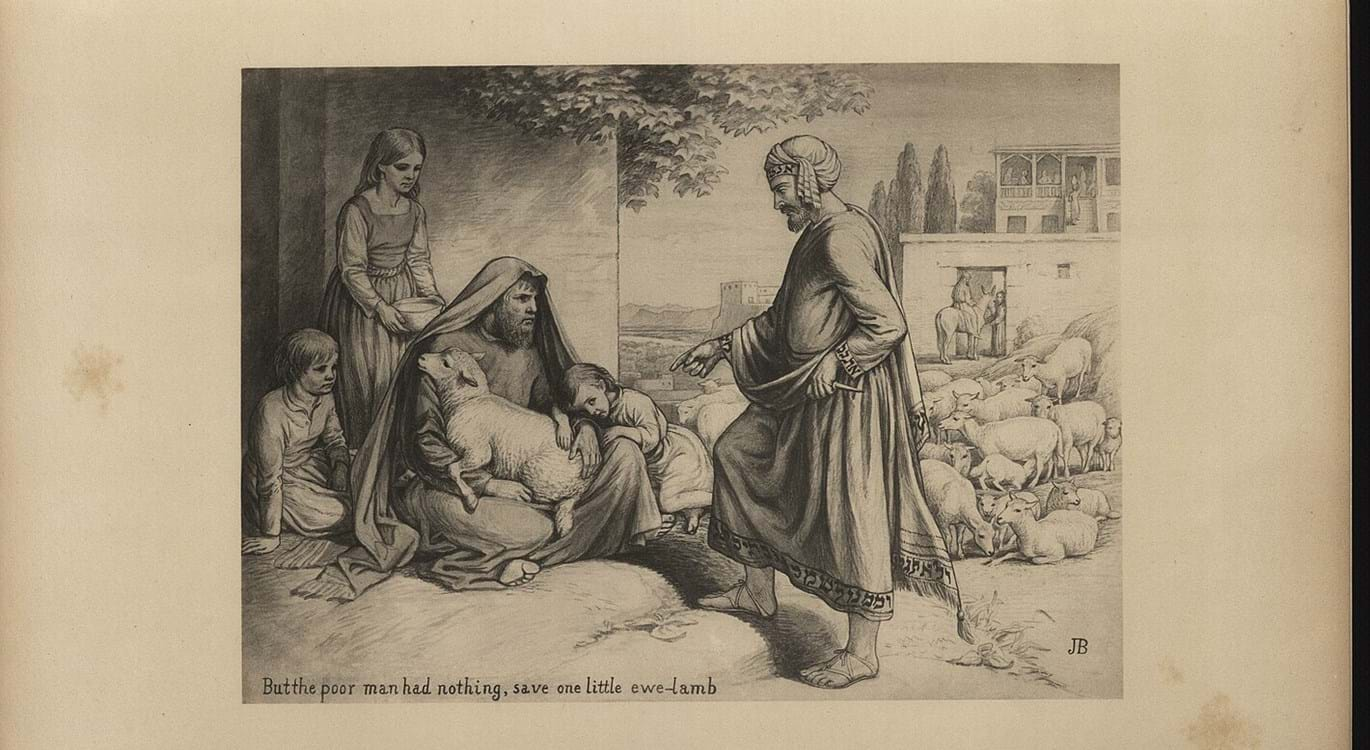Both Paul and Peter were recognized as apostles and carried the authority inherent in the position. But what of those times when a person in authority is abusing their position and there is no equal to address it? Suppose you find yourself in that situation? Are your hands tied? Is the sinner to carry on unconfronted in their sin? Surely the example of Nathan is of interest to us in this regard. Here is a man who confronts the most powerful man he knew, the king of Israel, with his sin, to great effect, and to the blessing not only of David, but also of the nation at large.
The Setting
Unchecked authority is dangerous to anyone. David had lost his moorings. His kingdom was established. He was no longer on the run. His armies no longer needed him at the head to vanquish the enemies. He had wandered away from dependence on God. His power had gone to his head, and the desires of the flesh had taken hold. He had been corrupted by power, and he used it to commit many grievous sins (2 Samuel 11). He had coveted another man’s wife, committed adultery, and concocted an elaborate scheme which resulted in the man’s death in an attempt to cover it up. Here is a king unchecked. How can he be stopped? What can be done? Is God blind to this? Are those who lead God’s people immune to correction, and able to sin with impunity? God sends Nathan with a message (2 Samuel 12:1). This is the first key. Nathan suffers from being on the wrong end of a severe power differential. He is nothing to David – and David has already shown he is willing to kill to wriggle out of the dilemma his sin has caused him. Without the call of God, Nathan would be foolish to cross David. Even with the call, Nathan’s confrontation is an exercise of faith, as he must confront to obey God, but he doesn’t know the outcome. He may still lose his head.
The Sword – the Word of God and Consequences
Nathan’s approach is twofold – he appeals to David’s shepherd heart and he uses the Word of God. He tells a story of grave injustice which evokes David’s ire and demand for justice to be done. To David’s surprise, the story is an exposition of his own sin. David had justified himself, but in the confrontation, he came face to face with the reality of his own actions. Nathan presses the issue. Several times he emphasizes that the message he is delivering is from the LORD. David is denounced for taking advantage of what God had done for him, for the sin that he had done and for doing it all in secret. This is the second key. How did Nathan overcome the major power differential? With the Word of God. This was no longer a confrontation between Nathan and David, this was a confrontation between God and David. To David’s credit, he declared his sin, repented, and was forgiven (verse 13). However, the consequences of his sin were not rescinded. With great power comes great responsibility, and God does not take the abuse of power lightly (cp. Matthew 18:5-6). David’s grip on the throne remains intact, but the sword of God’s judgement will plague his house for the rest of his days. In fact, the death of Uriah is repaid fourfold (see verse 6), as David suffers the loss of four sons in the ensuing chapters (12,13,18 and 1 Kings 2).
Lessons
It has come to your attention that someone in authority is abusing their position. They seem to be unchecked. What are you to do? First, you must be clear as to the sin (1 Timothy 5:19). Nathan knew the issue – how? We aren’t told and David wasn’t advertising, but there must have been an information leak in the palace. Second, you must be assured that God has called you to the task. This calls for courage, and you must be clear that God is with you, because most people abusing power do not respond like David to the exposing of sin! Finally, use the Word of God. The only authority that can overcome is the sword of the Spirit. The Word exposes, convicts, condemns and administers consequences (Hebrews 4:12-13). Don’t be distracted by worldly means and by potential outcomes. In all of this, remain faithful, as Nathan did, acting in the fear of God and not giving in to the fear of man.
Appeal to those in power – don’t be a bully!
Avoid unlimited power. Power is dangerous. This applies to all of us. This is the reason for a plurality in leadership. Ensure that no one is vested with authority they cannot control. Do not allow yourself to be unaccountable. Judge your own heart! If you recognize it in your own heart, remove yourself from your position. There isn’t anyone who is indispensable. And if confronted, never pull rank. Humble yourself quickly and accept the consequences. Diotrophes (3 John) was a man who needed this kind of teaching. He had become immune to correction. He had become the master of the church. John wasn’t going to let him get away with it. He is clear that he will come to confront, to elucidate the truth, to make things right. God’s people and God’s things are too valuable to Him to let them be abused. God’s love for His own is answered by His wrath against those who take advantage of them. It is a fearful thing to abuse what God deems to be sacred. He will protect and He will judge.
I conclude this article with an exhortation to cultivate good friends. Positions of authority can alienate, leaving you alone to your own devices. David might have been saved from his sin if he had had a friend or two who were there to stop him in his tracks. Seek and maintain friendships with a few trusted individuals who will disagree with you. Entrust them with the responsibility of keeping your life and be accountable to them. They need two conditions in order to do this well. Proximity and permission. You need to let them in and you need to open up. You must also give them permission to speak their mind with respect to your actions. Formulating friendships like this will not only keep you from sin, but will also keep you from establishing the power differentials that lead to abusive behaviours.
“Faithful are the wounds of a friend” (Proverbs 27:6a).



